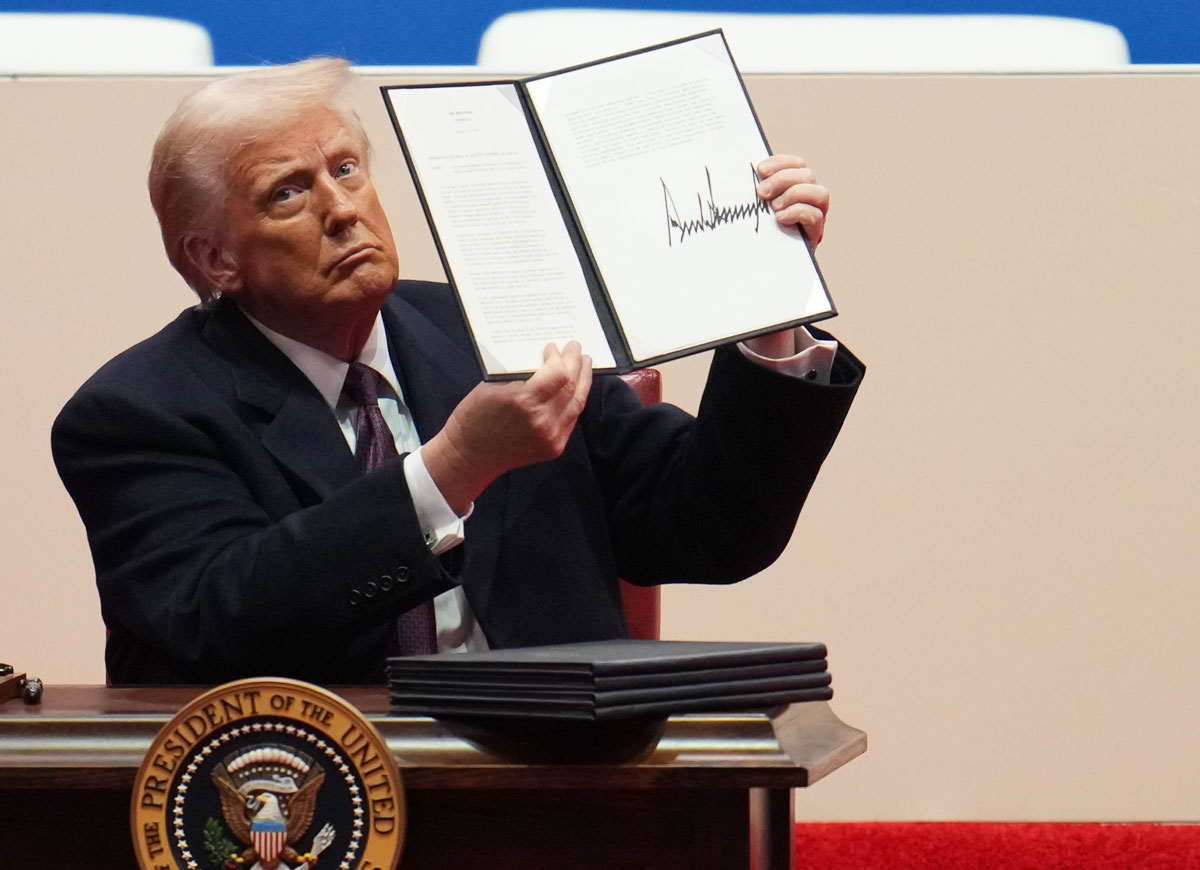Judge Declines To Restore AP’s Access To White House After Trump Bans Them For Refusing To Use ‘Gulf Of America’
On Monday, U.S. District Judge Trevor McFadden refused to order the White House to restore The Associated Press’ access to presidential events. McFadden declined AP’s emergency motion, saying the outlet had not proven harm requiring an immediate restraining order, but set another hearing for the case for March 20.
The AP refused to change its style from the Gulf of Mexico to the “Gulf of America” after President Donald Trump renamed it with an executive order. The service has accused the Trump administration of violating its First Amendment protections by refusing access. McFadden, a Trump appointee, found that there was not sufficient reason to issue an emergency decree.
Trump criticized the outlet’s coverage of him and the Republican Party at a news conference in Florida last week, saying the outlet has done them no favors. He defended the ban against the AP’s access to the White House, referring to its choice of what to call the Gulf. The wire service said it will refer to the Gulf “by its original name while acknowledging the new name Trump has chosen.”
“I just say we’re going to keep them out until such time that they agree it’s the Gulf of America,” Trump said.
Subscribe to our free weekly newsletter!
A week of political news in your in-box.
We find the news you need to know, so you don't have to.
Justice Department lawyers argued that the news agency has been able to rely on footage and coverage provided by other outlets to create reports from outside the White House. Associated Press attorney Charles Tobin argued that there are elements to be reported that cannot be seen on a television screen and require a journalist to be in the room.
“We’re not arguing the president has to answer the Associated Press’ questions,” Tobin said during the hearing, but access “can not be denied without due process.”
The filing said that just because the AP “may have long received special media access to the president does not mean that such access is constitutionally compelled in perpetuity.”
U.S. Attorney Brian Hudak argued that the case was about whether the president could decide who has access to him. He said, “No one has special access rights.”
“If tomorrow the White House decides to abolish the White House press pool, they can do that,” Hudak told NBC News. “I don’t think that offends the Constitution.”
In a statement following the ruling, AP spokesperson Lauren Easton said the agency looks forward to its next hearing on Mar. 20, “where we will continue to stand for the right of the press and the public to speak freely without government retaliation. This is a fundamental American freedom.”
Get the most-revealing celebrity conversations with the uInterview podcast!






Leave a comment